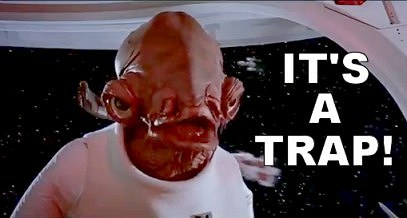Loved that previous message! Ha! Currently going through the DR Match and have also tried to make sense of messages I've received from various programs. Some messages have come in unprompted, which has been exciting I'll admit. Others have come in after emailing them first, and responses have ranged from "we enjoyed meeting you" to effusive letters of interest. My personal experience has been that I initially reacted by "up-ranking" programs that sent me unprompted e-mails, as I took their kindness/consideration to represent that they truly valued me. However, as the days pass, I've found myself scrutinizing the myriad of intentions for them doing so and becoming quite cynical; obviously, programs have their own agendas not all of which are genuine, sadly.
After reading a couple of JACR articles and reading previous years' threads for specialties other than DR, I've concluded that there really isn't any reliable way to predict outcomes and "game" the system. There is no way to guess programs' true motives, and I have more or less reverted to my first ROL sans email considerations, the ROL that reflects my instincts. Programs have various styles of communication, interviewers may forget to answer e-mails, and again, motives for messaging are diverse... even for two applicants ranking the same program and receiving messages. There are 900+ other applicants' preferences to consider as well, and it makes more sense that matching should be more a function of this than PDs' e-mails. My two cents.
I would argue then that there is little if no utility to messages on this thread from members that state they've been responded to by "X" program, especially when the details of their messages are not shared. The case could be that program "X" may have not e-mailed its tier 1 students but e-mailed its tier 2 to ensure it should fill with more preferred applicants should its tier 1 students opt to match elsewhere. It could also very well be the case (yes, worst nightmares can definitely be true) that program "X" e-mailed only its tier 1 students. It's hard to tell. Perhaps one thing can be garnered from post-interview communications: if you get a love letter from a program implying you'll match, you're very likely not the last person on that program's list.
🙂
You know, I've also wondered if perhaps the reason some people don't match into their dream programs is because they forget to certify their ROLs... I'm kind of thinking it's happened AT LEAST a handful of times in the past... so... remember to certify that ROL if you make changes!
Also, shouldn't PD-to-PD communications about specific applicants (i.e., ranking, interview specifics, programs interviewed at, etc.) be considered a Match violation? It creates a horrible information asymmetry between programs and interviewees. If it's a violation, great. If it isn't... well... it kind of seems like an unfair advantage. :-/
Again... my opinions... and not even good ones at that. If you received an awesome letter, feel free to share if you're so inclined. If you don't want to be psyched out, don't read the posts on this thread. Choices. Choices. I'm too squirrelly to post any specifics about my communications. I'm just gonna go with my BMI 40 gut on this one.
http://www.jgme.org/doi/pdf/10.4300/JGME-D-15-00062.1
http://www.jacr.org/article/S1546-1440(14)00434-7/abstract

